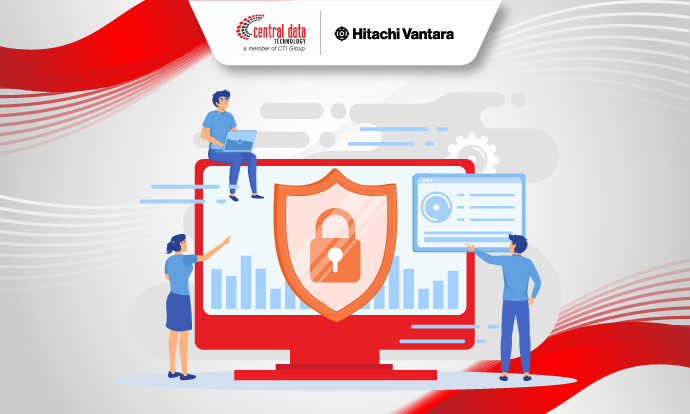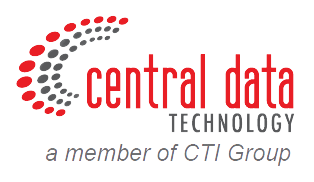
Data protection has become a critical obligation for companies to uphold, ensuring safety the customer data and the smooth operation of business. With the escalating instances of data theft and mining, data protection has emerged as a fundamental necessity.
According to Surfshark’s findings, data theft surged from 81 million accounts to 435 million. On average, a staggering 627 accounts were compromised per minute in the last quarter of 2023. This figure escalated to 3,353 accounts every minute in the first quarter of this year. But what exactly is data protection? To what extent is it a company’s responsibility to safeguard its data, and how does this impact the business budget? Find the comprehensive explanation below
What is Data Protection?
Quoting Tech Target, data protection entails safeguarding vital information from potential damage, interference, or loss. As the volume and complexity of data creation and storage surge at an unprecedented rate, the necessity for data protection intensifies. Hence, it’s crucial for companies and government agencies to devise data protection strategies, ensuring data availability and swift recovery post-damage or loss. Additionally, amidst the Working from Anywhere (WFA) trend, preserving data privacy becomes paramount. With mMillions of employees working remotely, companies need to adopt remote data protection strategies, safeguarding data across data centers, home laptops, or any location. Fundamentally, data protection encompasses a company’s capacity to safeguard, provide, and manage data under any circumstances, including data backup for business continuity and Disaster Recovery (DR) plans.
Example of Implementing Data Protection

In this digital era, implementing data protection is imperative to shield personal and sensitive information from misuse or unauthorized access. Here are several examples of implementing data protection:
Data Encryption
Encrypting stored or transmitted data is an important step to protect sensitive information. By using strong encryption algorithms, data can be converted into a format that cannot be read without the proper encryption key.
Privacy Policy
Companies should have a clear privacy policy that explains what type of data is collected, how it is used, with whom it may be shared, and what steps it takes to protect that data.
Limited Access
Provide data access only to individuals or entities who need the information to carry out their duties. This can be achieved through a strong authentication system and setting appropriate access rights.
Activity Monitoring
Implement monitoring systems to detect suspicious or unauthorized activity that could threaten data security. This can include access log monitoring, threat detection, and early warning systems.
Education and Training
Conduct regular training for employees on best practices in maintaining data security and how to identify potential security threats.
What are the benefits of implementing good data protection for your business?

Complex and evolving enterprise environments include hybrid cloud, virtualization, edge, and SaaS, driving companies to prioritize data protection as part of their business strategy. Not only because data continues to increase, the adoption of new technology also requires companies to improve management and data protection.
In addition, the ever-growing complexity of data means companies must spend more to protect data. This is because companies must allocate extra funds for storage and improving the IT team’s skills.
For businesses that are still using decades-old systems, of course this can threaten data security. They are also required to protect all data and workloads by following data protection, backup and recovery practices in cloud, edge and on-premises environments.
Data Protection Solutions from Hitachi Data Protection Suite and Hitachi Content Platform (HCP)
Hitachi Data Protection Suite (HDPS) is a comprehensive solution for data protection and management that combines functions such as backup, recovery and data management into one integrated platform.
Powered by technology from Commvault, HDPS provides the ability to manage enterprise data more efficiently and securely, reducing complexity by providing a single interface for all data protection needs. With HDPS, companies can ensure the reliability and availability of critical data, as well as accelerate data recovery in cases of loss or disaster, thereby increasing productivity and operational resilience.
Meanwhile, Hitachi Content Platform (HCP) is an object-based storage solution designed to store, protect and manage data with large scale and high reliability.
With HCP, companies can store data at petabyte scale easily, while maintaining flexibility, security and high availability. Additionally, HCP offers advanced features such as long-term data retention management, advanced metadata search, and seamless integration with other applications, enabling companies to better optimize the value of their data.
Additionally, here are some of the features and benefits that Hitachi Vantara offers:
Data Protection Solutions
- Unified Data Protection and Management
HDPS and HCP provide integrated solutions for backup, recovery, and management of enterprise data and applications. This way, you can reduce complexity by integrating multiple solutions into one versatile platform.
- Object Based Storage
HDPS leverages object-based storage, such as Hitachi Content Platform (HCP), which provides benefits such as reduced costs, superior scalability, and enhanced data visibility. It provides a powerful alternative to traditional file and block storage as well as tape.
Advantages
- Efficient Costs
By using HDPS and HCP, you can reduce operational costs by managing your company’s data efficiently, while maintaining the reliability required by large organizations.
- Fast Data Recovery
HDPS enables data recovery in minutes or hours from HCP, compared to days or weeks from tape. This speeds up the recovery of your critical data and avoids the hassle of tape management.
- Integrated Management
HDPS enables integrated management of enterprise data and applications through a single interface. This reduces the time, effort and costs required by separate point solutions.
- Long Term Data Retention
HCP extends long-term data retention management safely and securely at petabyte scale. This provides additional security for data that must be stored for long periods of time.
Together, HDPS and HCP create a powerful solution for modern enterprise data protection and management. They provide integrated and comprehensive experience in managing the life-cycle of data from creation, storage, recovery, to data destruction.
Get Hitachi Data Protection Suite from CDT
Ensure the availability of your business data with a data protection solution that provides easy backup and recovery, while saving costs. Central Data Technology (CDT) as Hitachi Vantara’s authorized partner will help you provide data protection while ensuring data availability throughout the environment in just one platform.
CDT’s experienced, professional and certified IT team will ensure that your company can implement data protection solutions without going through the trial-and-error stage. Learn more about how Hitachi Vantara can protect your business data by contacting us on the following link.
Author: Ary Adianto
Content Writers CTI Group

